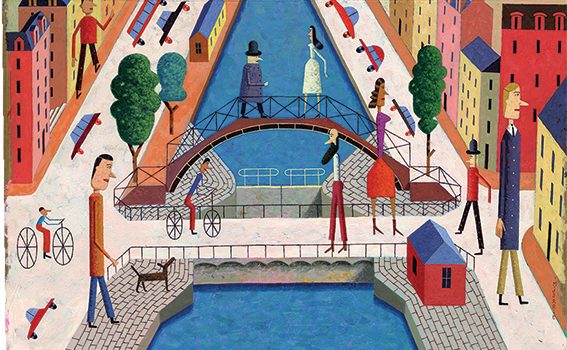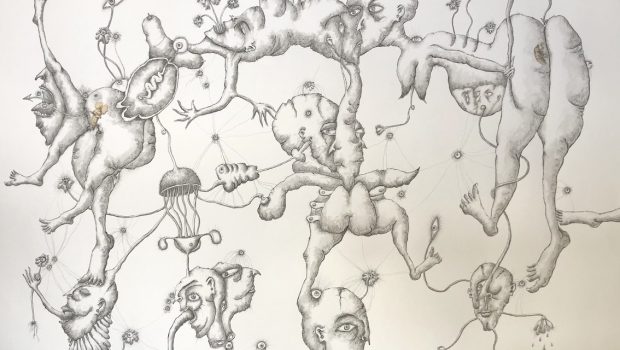Deconstructing the myth
Is happiness achievable, or something entirely concocted by the world around us?
By: Giselle Scicluna

What is happiness? If there is one million dollar question that remains a mystery to mankind, this is undoubtedly it. Ask a random group of people at any one time what they want most out of life and in all probability the answer would be “to be happy”. But for something that is seemingly so straightforward to most people, the pursuit of happiness is quite an elusive, abstract state of mind.
Of course, happiness is subjective, dependent upon a myriad of factors that are intrinsic to each and every individual, but in its widest sense, happiness means serenity or, at the very least, overcoming and doing without a feeling of unhappiness. If each of us had to analyse our feelings at this precise moment, there are very few who could honestly say that they are ecstatically happy with their lot; somewhere in the middle of the emotional spectrum would more likely sum it up perfectly. But is our obsession with happiness all it’s cut out to be? Why do people who – to all intents and purposes – seem as if they have it all, still find happiness such a baffling concept?
Is happiness something we can actually achieve or something entirely concocted by the world around us, endlessly reinforced by our insatiable quest for ‘the next best thing’?
Judging by the millions of column inches in self-help books, the at times condescending tutorials and/or seminars by renowned life coaches and the thousands of agony aunts all lecturing us on how to be jollier, it is natural to come to the conclusion that this planet is inhabited by one hell of a miserable lot. Reinforced by aggressive advertising depicting gloriously happy scenarios, it is little wonder that the feeling of being ‘left out’ is forever impressed upon our brains, further augmenting the myth that we really and truly must be doing something wrong.
It seems as if, in the modern world, all the forces outlined above conspire to make us believe that happiness – or the lack thereof – is equal to our capability to have certain personality traits: achievement, earning power or material wealth. But, time and time again, these have proved to be not such determining factors when it comes to the happiness stakes. History books uncompromisingly outline that we are richer than ever before: much, much wealthier than our forefathers and with a better quality of life. However, the happiness factor is probably still at the same level it was a century ago, when life was much harsher and the standard of living much lower.
Looking at the derivation of the word ‘happy’ itself provides a useful insight into our confusion with this abstract feeling. The first recorded meaning of the word in most European languages, from Ancient Greek to Irish, is ‘to be lucky’, which – frankly – explains quite a lot. The ancient association between happiness and good fortune has trickled down and confused entire generations, evolving into the mistaken belief that happiness is an enduring, achievable state of being when in fact – or at least for most of us – it is a fleeting sensation that we experience with the most seemingly insignificant event: the smile of a baby, a long-forgotten scent from childhood, a walk in the first rains, an unexpected hug… >>
Realising that happiness is neither equated nor related to anything we can purchase, gain or achieve is perhaps the first hurdle to overcome in our pursuit of true happiness.
Not the exaggerated myth the world is constantly trying to sell, but at least the sense of true contentment from having lived a good and fulfilling life. It might sound like a well-used cliché, but analysing our self-worth and real value to our nearest and dearest is the first step towards achieving a sense that all is well with the world. A hefty pinch of salt is essential in assimilating the drivel we are force fed every day that urges us to do or be something or other which, quite frankly, reinforces the sense of inadequacy most of us feel on any given day. A happy life is not a direct result of what we do or our particular circumstances, whatever these may be, but rather our ability to ‘think ourselves happy’ with realistic expectations, and our coping mechanisms when these expectations are not fulfilled due to events well beyond our control.
Nurturing relationships are the foundation of a joyful existence and have been proven time and time again to be the essence of all that makes life worthwhile. This, of course, is at times much easier said than done, but having a solid support network equates not only to a happier state of mind but, if scientific research is to be believed, also to a longer and healthier life. But the greatest gift we can give ourselves on our quest for long-lasting happiness is undoubtedly acceptance: acceptance of the fact that we are human, with a wide range of emotions that shift constantly between exhilaration all the way through to inexplicable sadness; acceptance that happiness is not a state of being but an emotion and that, like every other emotion, it is a feeling that will pass – in this case to be enjoyed while it lasts!








